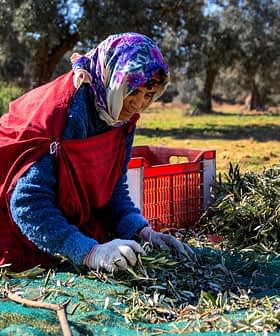Tunisian President Celebrates 90th Birthday by Hosting 2020 Conference
2020 was not Tunisia's first attempt at luring international investors. In 2014 Tunisia hosted 'Invest in Tunisia' which failed to seduce foreign money.
Tunisian president Beji Caid Essebsi turned 90 as he opened Tunisia’s 2020 conference on November 29. The conference aimed to attract $60 billion in foreign investment in Tunisia. Since the Jasmine Revolution, in 2011 around 500 foreign companies have left Tunisia due to disruption caused by protests and sit-ins.
Tunisia 2020, which ran from November 29 – 30, was an attempt to reboot foreign investment in Tunisia. Foreign investment fell from $3.5 billion in 2010 to $2 billion in 2015. In his opening speech, Essebsi said, “Tunisia has been passing through a very particular phase and requires a level of support that it would not normally need.”
See Also:More Articles on Tunisia
2020 was not Tunisia’s first attempt at luring international investors. In 2014, Tunisia hosted ‘Invest in Tunisia’ which failed to seduce foreign investors.
A new investment law was passed in September to make foreign investment in Tunisia easier. The law will relax bureaucracy and ease restrictions on transferring funds out of Tunisia. Under the new law, foreign companies will enjoy tax-free profits on major projects for 10 years.
Tunisia has been crippled by strikes over the past five years. In September, Tunisia’s Grand Mufti Sheikh Othman Battikh controversially spoke out, calling for an end to protests and sit-ins. Every sector of the workforce from teachers and taxi drivers to lawyers has resorted to strikes. The Tunisian General Labour Union (UGTT) called for a general strike on December 8 against proposed wage freezes in the 2017 budget.
The Tunisian economy was dealt a sharp blow by terrorist attacks in 2015. Tourism slumped following 20 deaths at the Bardo Museum and 37 tourists losing their lives in the Sousse beach massacre.
The Tunisian Government declared a state of emergency in November 2015 following a suicide attack on a bus in Tunis. The state of emergency has continued and will be in place until January 19, 2017.
The first day of the conference saw $8 billion pledged in loans and aid. The funds came from regional and western partners including France, Canada, Qatar, Kuwait, Switzerland, Turkey and Saudi Arabia.
Much of the funding came in the form of loans rather than the desired investment. According to economic analyst Ezzedine Saidane, “A large amount were for loans for projects. We didn’t hear that much about investments.” Saidane added, “Loans are fine but they are also going to deepen Tunisia’s debt.” Tunisia’s investment minister Fadhel Abdelkefi agreed, “We don’t need loans as much as we need investments.”
2020 showcased two olive oil projects seeking investment: €7 million was sought to fund a project which would bring much-needed jobs to Kasserine. The enterprise would produce organic and non-organic olive oil. Funding would be used to plant 100 hectares of olive trees and build a modern processing and packaging unit.
A second project aimed at promoting Tunisian olive oil to international markets sought €80 million to plant 10,000 hectares of olive groves and build a processing and packaging unit. This business would create 2,500 jobs in Beja, Bizerte, Jendouba, Kasserine, Le kef and Siliana.
Unemployment in Tunisia stands at around 15.5 percent with higher rates among youths and in rural areas.
Tunisia 2020 was attended by heads of states, international institutions and business people from 70 countries. The conference aspired to promote Tunisia as an attractive business destination and bring in funding for investments.
Essebsi became Tunisia’s first freely elected president in December 2014. His election raised concerns among many that Tunisia would return to the old establishment. Essebsi had served under ousted president Ben Ali and held the position of Interior Minister during Habib Bourghiba’s presidency.
Essebsi became the third oldest head of state in the world during Tunisia 2020. It remains to be seen if the conference attracted enough new foreign investment in Tunisia to get the country back on its feet.








